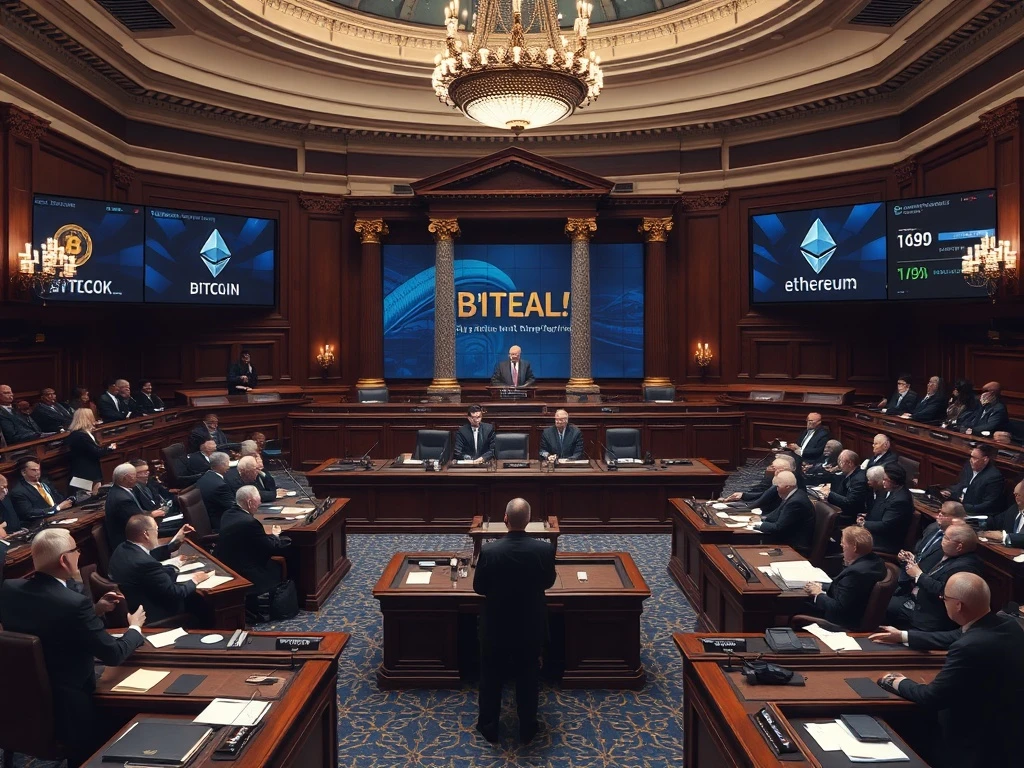Senate Stock Trading Ban Shakes Up Financial Ethics for Elected Officials and Digital Assets

In a bold move to restore public trust, the U.S. Senate is pushing forward with a groundbreaking stock trading ban for elected officials, including digital assets like stablecoins. Could this be the end of insider trading in government?
Senate Advances Stock Trading Ban: What You Need to Know
The Senate Homeland Security and Governmental Affairs Committee recently voted 8-7 to advance the PELOSI Act, a bipartisan bill that would prohibit members of Congress, the president, and vice president from trading stocks and other financial instruments. Key points:
- The ban extends to digital assets, reflecting growing concerns about crypto insider trading
- Supporters argue it eliminates conflicts of interest in government
- Critics warn it may overreach into executive powers
Why Digital Assets Are Included in the Trading Ban
The inclusion of cryptocurrencies and stablecoins in the Senate stock trading ban marks a significant development for the crypto industry. This move:
| Impact | Explanation |
|---|---|
| Regulatory precedent | Sets groundwork for future crypto legislation |
| Market implications | Could affect how officials disclose crypto holdings |
| Ethical standards | Prevents potential abuse of nonpublic information |
The Political Battle Over the PELOSI Act
The proposed Senate stock trading ban has sparked intense debate, particularly within the Republican Party. While Senator Josh Hawley champions the bill as necessary reform, former President Trump has criticized it as an overreach. The controversy highlights:
- Growing tensions between transparency advocates and establishment figures
- Deep divisions within the GOP on financial regulation
- Questions about executive privilege versus ethical governance
What This Means for Financial Ethics in Government
If passed, the Senate stock trading ban could fundamentally change how elected officials interact with financial markets. The legislation represents:
- A potential turning point in government accountability
- Increased scrutiny of officials’ financial activities
- A model for other nations considering similar reforms
The Senate’s move to ban stock trading for elected officials, including digital assets, signals a growing demand for transparency in government. While the bill faces hurdles, its advancement marks a crucial step toward eliminating conflicts of interest and restoring public trust in political leadership.
Frequently Asked Questions
What is the PELOSI Act?
The PELOSI Act is proposed legislation that would ban members of Congress, the president, and vice president from trading stocks and other financial instruments, including digital assets.
Why include cryptocurrencies in the trading ban?
Lawmakers included digital assets to prevent potential insider trading in emerging markets and set regulatory precedents for crypto holdings by public officials.
How would the ban affect cryptocurrency markets?
While no immediate market impact is expected, the legislation could influence future crypto regulations and disclosure requirements for government officials.
What are the main arguments against the bill?
Critics argue the ban overreaches into executive authority and may have unintended consequences for legitimate investment activities.
What’s next for the legislation?
The bill must pass the full Senate and House before becoming law, facing potential amendments and political negotiations along the way.








